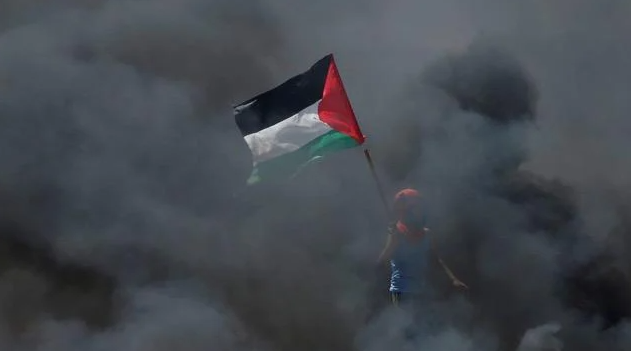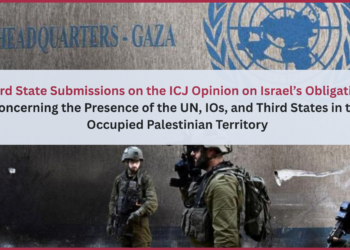New Study by Maryam Jamshidi Explores Genocide and Resistance in Palestine Under International Law
Taylor & Francis Online has recently published a study in the Journal of Genocide Research by Maryam Jamshidi, titled “Genocide and Resistance in Palestine under Law’s Shadow.” This study delves into the complex intersections of genocide, war, and international law, offering a critical analysis of the current situation in Palestine.
Jamshidi’s study addresses five critical questions posed by the journal’s editors, each of which stands alone but also interconnects with the others. The essay begins with an examination of the ongoing discourse surrounding Israel’s alleged genocide against Palestinians in Gaza. It further explores South Africa’s attempts to hold Israel accountable for violations of the United Nations Convention on the Prevention and Punishment of the Crime of Genocide (Genocide Convention) at the International Court of Justice (ICJ).
One of the essay’s central themes is the intricate relationship between the Genocide Convention and International Humanitarian Law (IHL). Jamshidi critiques the double standards prevalent in US-based scholarly debates regarding IHL violations by Israeli forces compared to those committed by Palestinian resistance groups. The study also investigates the Palestinian right of resistance and Israel’s obligations to cease its occupation and colonization of Palestine.
The essay is structured around several key sections:
- Genocide and South Africa’s Case Against Israel at the ICJ
- The Relationship Between the Genocide Convention and IHL
- Identifying Israel’s IHL Violations in Gaza: An Enduring Scholarly Double Standard
- The Palestinian Right of Resistance and the Israeli Obligation to End Its Colonization and Occupation of Palestine
- International Law, Politics, and Palestine
In her conclusion, Jamshidi argues that reclaiming international law for Palestine is essential for achieving accountability for a vulnerable population. She asserts that the plight of Palestinians is emblematic of broader issues faced by people in the Global South, who are also susceptible to state violence and rights erosions. The proceedings on Palestine at the ICJ and the International Criminal Court (ICC), she suggests, are significant not just for Palestine but for the entire Global South.
Jamshidi underscores the importance of this focus by quoting Carolyn Rodrigues-Birkett, Guyana’s Ambassador to the United Nations, who stated, “[a]t its core, the Palestinian question is [the] question of justice.”





